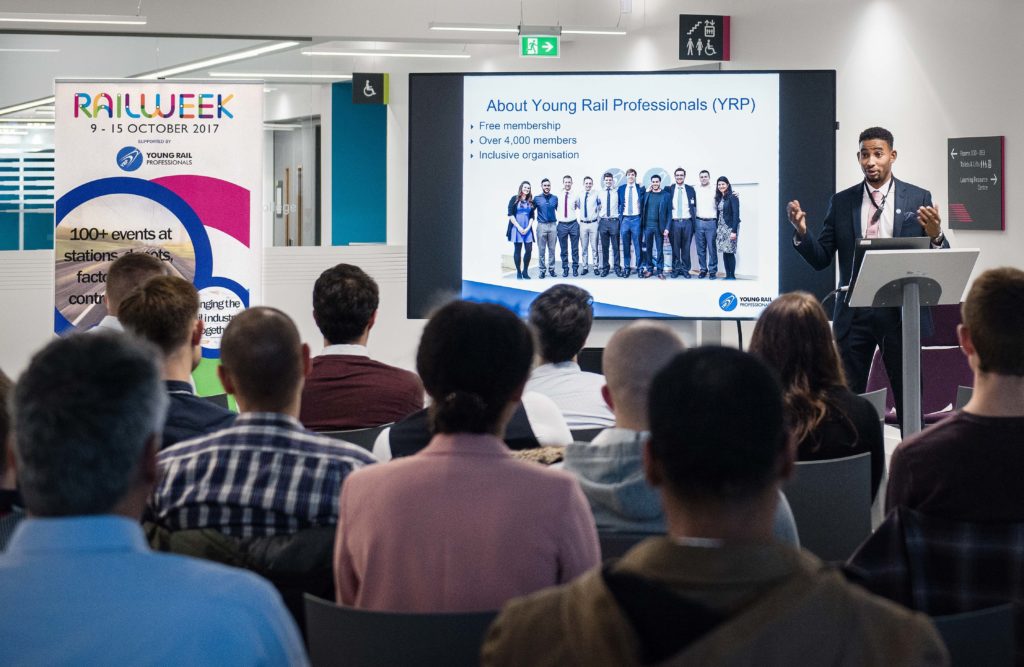In the last edition of RailStaff I launched a series of editorials to voice the views of my peers – young professionals in rail and the future leaders of our industry. I wrote about the changes to working habits caused by the pandemic and how a sympathetic attempt to return to normal will likely yield the fairest and most sustainable operating conditions for the newer and less-experienced workforce.
The company I work for, HS2 Ltd, recently published its annual Equality, Diversity and Inclusion report. The numbers are promising. With improvements across the various measures of protected characteristics and numbers far in excess of the industry average, it looks like the transformative approach to the delivery of HS2 is paying off. When government spends its money wisely, holds its arms-length bodies to account, and tracks progress against a robust benefits-baseline, it has shown it can create exemplar organisation for the industry to follow.
There is no doubt that through the industry restructuring proposals in the Williams-Shapps review, the Department for Transport intends to build on the momentum of its exemplar projects and redesign the railway system to be fit for the future. Young rail professionals I have spoken to, perhaps more comfortable with business change and career risk than their mentors and leaders, welcome this opportunity for change. But they know government cannot do it alone and are eager to contribute to the programme.

Key to the industry’s future success are two things – productivity and people. Inextricably linked, both drive the industry’s cost and image and, if managed well, will secure the railways as the country’s long-term green and affordable mass transit solution. In the eyes of my peers, improving the quality of the workforce and the efficiency with which they are employed in the system, from engineering to operations, will make the Great British Railways’ balance sheet much more sustainable and appeal to HM Treasury and the public alike. Vertical integration – in this application the bringing ‘in-house’ of functions and delivery agents, and transfer of risk to a single controlling mind – will enable better long-term decision making and present a credible plan to the Exchequer for achieving greater cost and planning certainty. Much the same way as HS2 is set up to enable whole-life-benefits through its supply chain, long before the project outputs and costs arise.
We believe these plans should also include a one-system approach to people. I know the industry will only attract good people and contractors if there is sufficient opportunity – and early career professionals certainly want a fair incentive to dedicate our working lives to the railways. But equally, we want the industry to be financially sustainable and it is obvious to my peers that the warnings of industry experts and past government reviews seem to have gone unheeded, and resourcing and contractor costs are still too high. Wage inflation, skills and personnel shortages, and poor investment certainty are among the causes. Young Rail Professionals Ltd has a small part to play in attracting, retaining, and developing the next generation of railway talent, but only a coordinated approach from government will generate the intake of in-demand skills required to improve the persistent cost-to-go pressures in the future.
Very few young professionals I speak to are engaged in gain-share employment contracts (those benefiting from bonuses linked to project performance). This may be a symptom of my lower-salaried peers holding less project accountability but may also offer an insight into an industry that is insufficiently incentivised to drive performance, and within which the accountability for productivity sits too far from the value-add. Previous industry restructures have reduced management layers to tackle this issue, but I think a more radical approach may been needed now, with far greater personal accountability for team and project performance. I, personally, am frustrated at the needless waste caused by inefficiency, incompetence, and negligence – and I know many of my peers would support a more direct approach to ensuring only those who can do the job well are retained in the industry. The industry’s approach to safety, with strict accountability, competency management, and personal consequence has improved our safety record to one that stands us among the safest railways in the world. Why not have the same approach to commercial performance and culpability for failure?
Happily, YRP has been engaged by the Great British Railways’ Transition Team – the business change organisation commissioned by Andrew Haines to deliver the future GBR model – to share our views on culture change. To me, culture is especially important to shaping the attitude of the workforce and if managed well can be a convincing vehicle for change. The tangible people and behavioural qualities that the industry wants to prioritise and promote will be key to attracting both workers and passengers to the new system. When asked for our ‘cultural priorities’, perhaps unsurprisingly we focussed the culture team on accountability, integrity, and empowerment. To those looking from inside and out, the industry needs a workforce which is totally accountable for its safety, wellbeing, and finances. It needs leaders who act with integrity to deliver the transport requirements of government, and sufficient confidence in its high-quality workforce to empower the most capable, diverse future leaders to cement the industry as the country’s primary mass-transit system of the future.
Author – George Chilcott.

